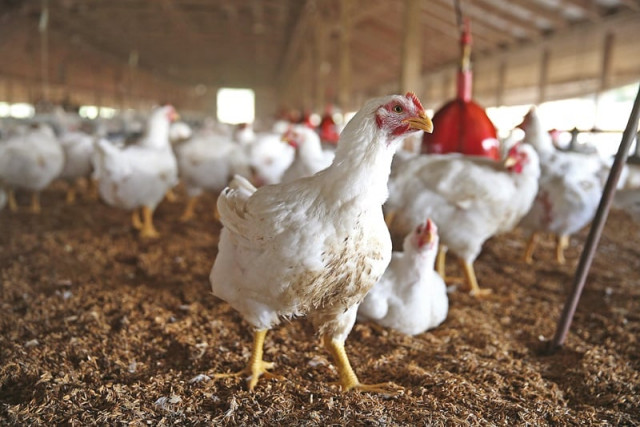Driving growth in the poultry sector
Modern methods key to future prospects of farming.

Driving growth in the poultry sector
Poultry industry, for example, has existed in Pakistan for 52 years, but has not been able to attract the kind of investment it could have based on its potential.
Seasonal losses, lack of legislation, import duties and sales tax are issues that remain as core issues. However, adopting the latest technology – moving from traditional open farms to modern environment-controlled sheds – and the induction of skilled labour are factors that can be altered.
A poultry exhibition was recently held in Lahore, the main focus of which was to educate and encourage investors of traditional open farms to adopt modern technology. Over 120 companies, 65% of which were multinationals, put up stalls to display solutions in the field of modern farming.
Talking about the benefits, Pakistan Poultry Association Chairman Raza Mehmood Khursand said the sector was crucial to the country. “Poultry is the only organised sector in Pakistan,” said Khursand. “It fulfills 40% protein requirement of the population, while maintaining balance with other proteins such as mutton and beef.”
“Chicken prices are economical and are used by every income segment of the society.” Currently, around 6,500 environmentally-controlled sheds are now operational in Pakistan out of a total of 25,000 poultry farms.
The current investment in this sector amounts to Rs700 billion, while its share in national GDP is 1.3%, generating direct and indirect employment for 1.5 million people.
But the future looks bright for the poultry industry.
A huge number of students from the University of Veterinary and Animal Sciences (UVAS) Lahore have been asked by their professors to meet industry experts – both local and multinationals – to discuss changing global poultry practices to gain practical knowledge and traditional and modern sheds.
“This participation is part of their education”, said UVAS Assistant Professor Doctor Shahid Mehmood.
“We believe that this sector, once fully modernised, will be in dire need of trained professionals and our university has introduced degree programmes for its future needs. There are a lot of sub-sectors and technologies associated with this industry. This expo was a chance for students to learn what prospects are in store,” Mehmood added.
The need for trained manpower is crucial. Export markets need certified and disease free meat, which may not be delivered by open sheds and traditional farming practices.
“Shift in technology and skilled manpower will be the key. These two factors can curb the loss mantra and will boost the export market share, benefiting the industry in general,” said former PPA chairman Abdul Basit.
Published in The Express Tribune, September 30th, 2014.
Like Business on Facebook, follow @TribuneBiz on Twitter to stay informed and join in the conversation.


















COMMENTS
Comments are moderated and generally will be posted if they are on-topic and not abusive.
For more information, please see our Comments FAQ